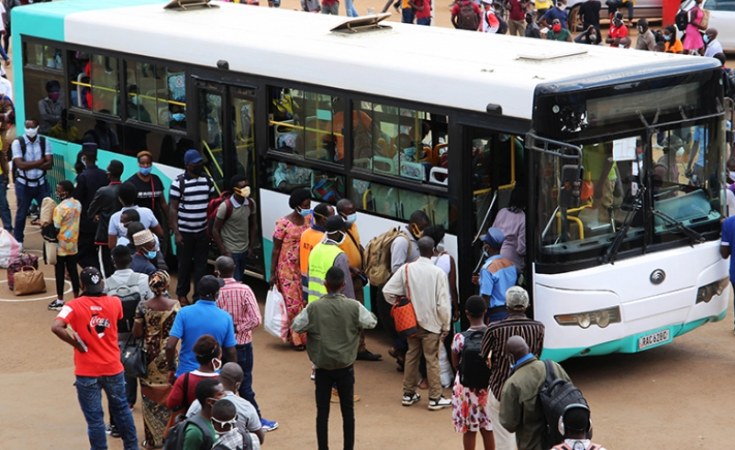Rwanda is set to mobilise $13 billion in modernizing and greening transport sector up to 2050 according to the revised Green Growth and Climate Resilience Strategy (GGCRS) approved by the cabinet last week.
The strategy is keen on positioning Rwanda as a developed, climate-resilient and low-carbon economy by 2050.
The initial strategy had 14 programmes of action that were outlined while the revised one has the eight Programmes of Action including transport.
The programmes include low carbon, climate resilience energy and transport, green industry and private sector, low carbon and smart urban infrastructure, resilient urban landscapes, adaptive and resilient land use management, integrated water resources management, sustainable agriculture, forestry and conservation, green and climate resilient rural settlements.
The revised GGCRS provides a coherent framework and casted set of interventions and actions that sector departments and entities must take forward.
The revised GGCRS included the financial needs for the implementation.
The strategy shows that, in order to modernize and green transport sector, public sector funding need is estimated at $7.6 billion while $ 5.4 billion has to be mobilised in private sector investment.
At least $1billion is need E-mobility in cities, $2.9 billion for development of aviation sector, $1.6 billion for Construction of railway network, $1 billion million for waterways, and other regional infrastructure like border posts, $4.4 billion million for road network expansion, maintenance, improved climate resilience and increased road safety.
Cable car system, BRT, and metro rail system
Over $64 million is needed for Real-time digital control room or "command centre" for major transport networks, $1.6 billion for Large public transport infrastructure such as cable car system, Bus Rapid Transit (BRT), and metro rail system in cities.
The revised strategy shows that $6 million will be spent on Incentivising non-motorised transport in cities by promoting transition to Green Public Transit as $7 million is needed to establish formalisation and integration of schedules, fares and systems.
It shows that $248 million is needed for Route franchising approaches to ensure availability of bus services in rural areas.
"Without intervention the continuous increase in the population and subsequent rise in transport traffic will likely transform into growth of greenhouse gas emissions, hindering the achievements of the country's 2050 Vision," reads part of the revised strategy.
The ministry of environment said that the overall vision for the transport sector is to gain a modern transport infrastructure that promotes free movement of goods and passengers by being efficient, safe, reliable and seamless integrated at both national and regional levels.
It says the provision of reliable and cost-effective transport systems will enable the population's needs to be met, allowing cities to grow in a sustainable way and rural settlements to stay connected and thrive, with further initiatives for green growth to be considered throughout the strategy implementation.
In 2018 an evaluation was conducted to determine the key achievements, shortcomings, and lessons learned in implementing the 2011 strategy with the aim of ensuring it continues to serve as a relevant, effective, and implementable guiding national document.
"One of the recommendations was a call to revise the Strategy with a view to ensuring it remains adaptable to rapidly evolving conditions spurred by development demands," said Jeanne d'Arc Mujawamariya, the Minister for Environment.
She added that: "The strategy has also been revised to align with Vision 2050 to ensure that it defines a development pathway for Rwanda that is a climate-resilient and low-carbon economy and harnesses green economic innovation by 2050."


